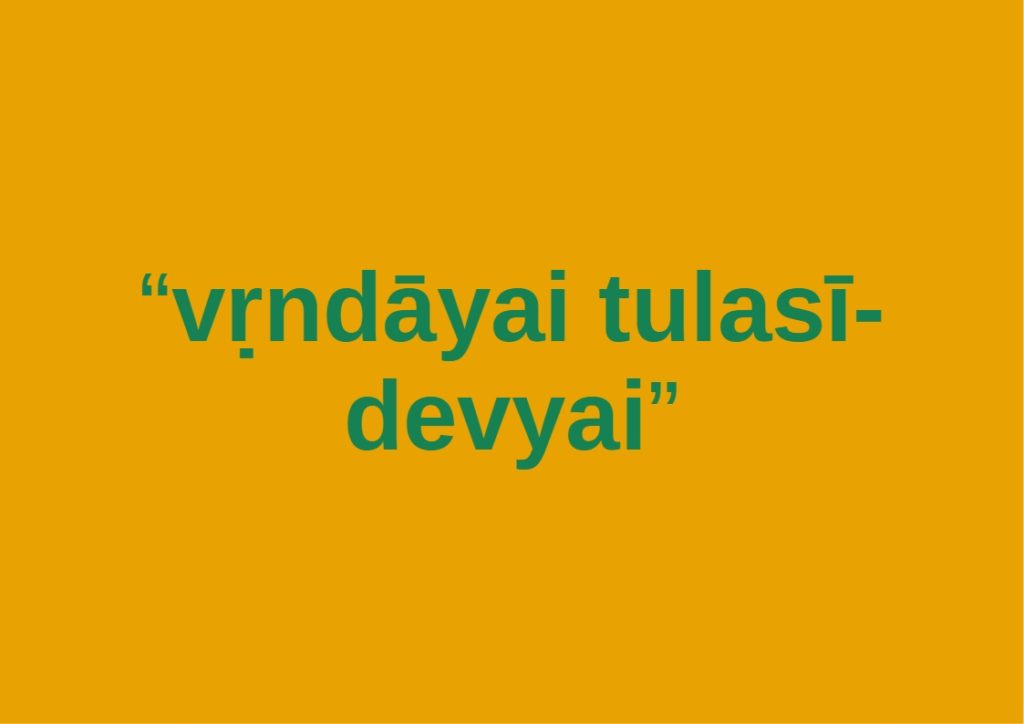What we chant in ISKCON’s daily program (continued)
Śrīla Prabhupāda’s Kīrtana Standards,” installment 35

In the tulasī praṇāma, in the line vṛndāyai tulasī-devyai, the right word is devyai, not devī or devai. And the often-heard nivedena is a mispronunciation of nivedana, which denotes a request or appeal. Similarly, adhikoro is an attempted Bengali pronunciation that gets things only half right. What we want is adhikāro. And should we say kṛṣṇa-bhakti or viṣṇu-bhakti? The way Śrīla Prabhupāda gave us the mantra (in a letter to Govinda Dāsī dated April 7, 1970), it’s viṣṇu-bhakti. But some devotees soon switched it to kṛṣṇa-bhakti, and as I recall, Śrīla Prabhupāda said this was all right.
At ISKCON Māyāpur – and elsewhere also – we sometimes hear “Jaya Tulasī Devī! Jaya Bhakti Devī!” Why? Tulasī Devī is not Bhakti Devī. As Śrīla Prabhupāda wrote to Rukmiṇī Devī, “Bhakti Devi is the expansion of Srimati Radharani.”1
I seem to recall a letter – not found in the Bhaktivedanta VedaBase – where Śrīla Prabhupāda wrote, “Without Tulasi Devi, Bhakti Devi will not come.” Perhaps a misunderstanding of this letter has resulted in the notion that Tulasī Devī and Bhakti Devī are the same.
Notes:
1 Letter to Rukmini, January 31, 1969.

You must be logged in to post a comment.